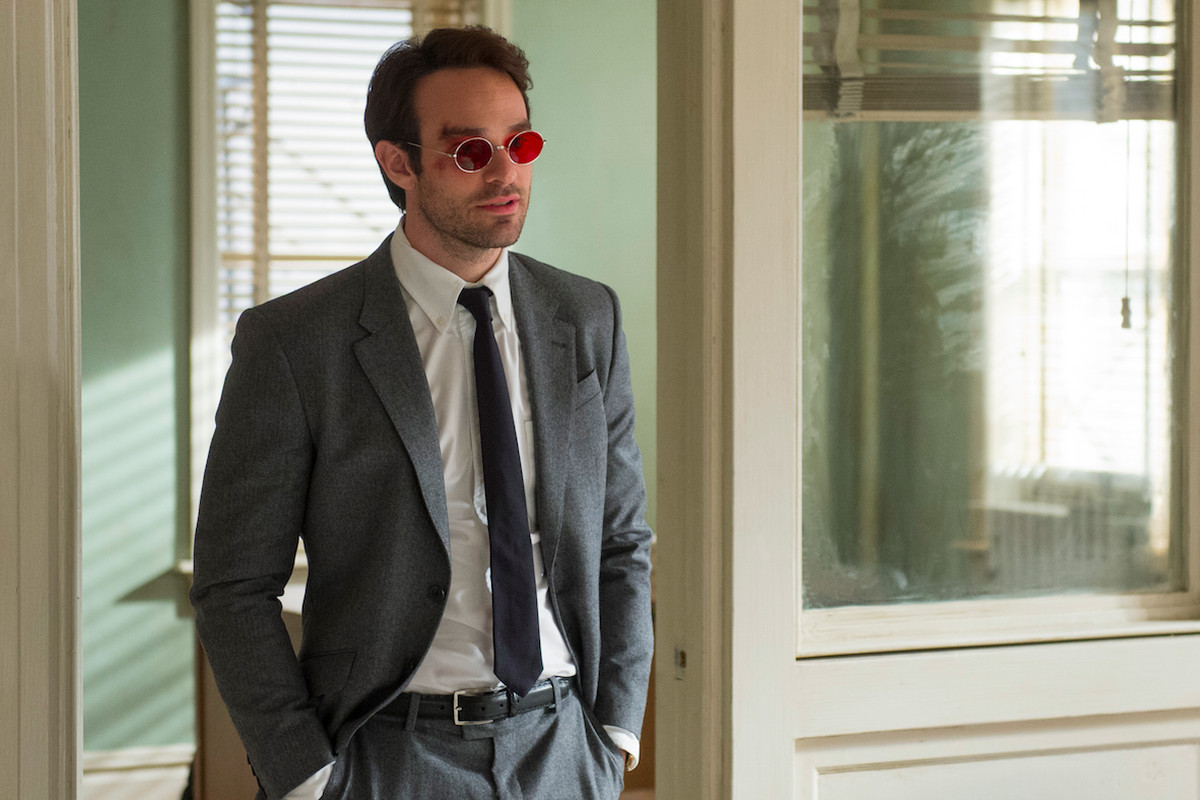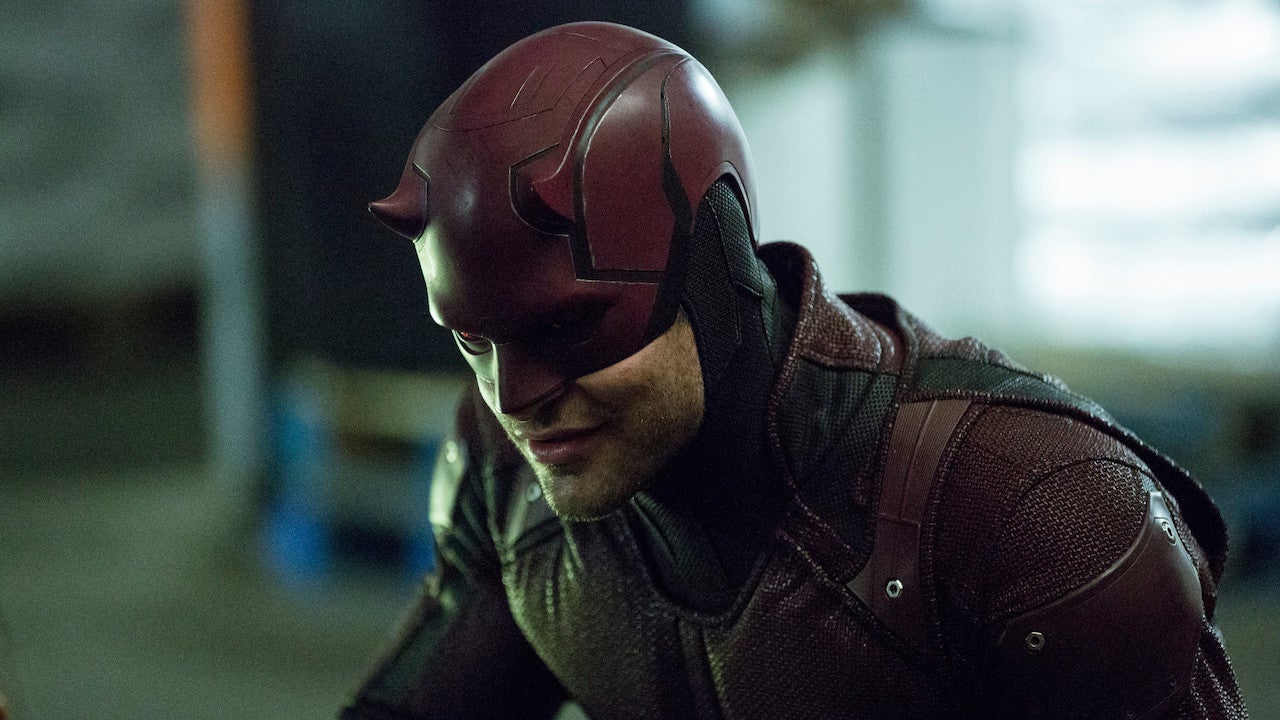'Venom: Let There Be Carnage' Is a Gay Love Story and I'm Here for It
Yeah, sure, the movie’s about Carnage. But it’s really about love. A love that defies all odds: the love between a man and his man-eating alien symbiote.
Spoilers for Spider-Man: No Way Home, Hawkeye, and Daredevil.
The Netflix Daredevil renaissance is finally upon us! I’m so happy to see Daredevil back in the public conversation. Ever since Charlie Cox’s cameo as Matt Murdock in Spider-Man: No Way Home and Vincent D’Onofrio’s appearance as Kingpin on Hawkeye, the internet has been abuzz about Daredevil’s possible return. Many have either been rewatching the show’s three seasons or watching them for the first time. I rewatched, and it’s as good as ever.
One of the show’s most unique aspects is that its titular character is blind. Matt Murdock was blinded as a child in an accident involving radioactive chemicals that took away his sight but heightened his other senses. During the day, he works as a lawyer. At night, he uses those heightened senses to fight as a vigilante. But how is his blindness represented in the show?

When it comes to little details about Matt’s every day life, the show gets a lot right. Throughout all three seasons, Matt is shown reading hardcopy braille documents with his fingertips. He also uses assistive technology most blind people use. None of this is part of his “blind act”—he genuinely can’t see screens or read print. When working on cases, he’s shown using a refreshable braille display with an earpiece for a screenreader for his computer.
All of Matt’s devices talk to him, too. Since he can’t rely on visuals like sighted people, he relies on audio. His alarm clock is a “Talking Alarm Clock” and repeats the time out loud. When he gets a phone call, his phone repeats the caller ID out loud. In season 3, when he gets a text from Agent Nadeem, his phone reads the entire text out loud to him. At home, he listens to the news. All of these are nods to the little differences in the way a blind person lives.
Matt never treats his blindness as a burden. He doesn’t fall into tropes of the helpless person with a disability. Matt can take care of himself. He lives alone, he cooks, he uses the Internet, etc. His friends never treat his blindness as a burden, either. Foggy makes lighthearted jokes once in a while, but none that are ever condescending. He treats Matt as he would a sighted person while still casually helping him when asked or needed. Foggy guides Matt across the street; he reads printed and on-screen text for him; he tells him what other people in the room or on TV are doing, how they’re dressed, their facial expressions, etc. so Matt can be just as aware of what’s going on.

While Daredevil gets much right about blindness, it gets a lot wrong, too. Foggy says Matt has touched his face, Karen wants him to touch hers, and Foggy notes that Matt has touched the faces of many women he’s brought home. The show makes it seem as if this is the only way a blind person can get a visual of another person, or that it’s essential to relationships. This, however, is generally a myth about blind people. They don’t typically feel others’ faces to get visual information. Even so, feeling another’s face doesn’t give much useful information.
Many of the tools Matt uses throughout the day are depicted accurately, all but his most important tool of all: his cane. Matt uses it a lot to get around, as any blind person would. However, as soon as he drops the “blind act,” he doesn’t need it anymore. Matt tosses his cane aside more times than I can count. It’s as if he can simply shed his disability as he takes on his Daredevil identity—something real people with disabilities cannot do. Blindness is not an “act” people can take on and off like a mask. Matt’s ability to do that makes him unrelatable for real blind people. For a blind person, the cane is an extension of their body. Even if Matt has heightened senses and can navigate a space on his own, every time he tosses his cane aside it feels like a betrayal of his identity as a blind man.
The cane issue points to a bigger problem with Matt Murdock’s character, which is that his other senses more than compensate for his lack of vision. He can hear heartbeats, track breathing, and even sense specific objects through barriers. He functions much better than a sighted person. His disability never actually disables him. Only once does his blindness slow him down in battle: when he’s fighting the Hand in season 2, the ninjas slow their heartbeats so he can’t hear them, and he’s rendered truly blind as they walk right in front of him. Matt’s mentor Stick then teaches him to track their breathing, and suddenly Matt can land perfect punches again. Matt’s super senses perpetuate a myth that blind people have super senses beyond vision. While blind people do rely more on sense of smell, hearing, and touch, that doesn’t mean they have enhanced senses. Their senses are the same as sighted people’s, although they may be more sensitive to them and faster to respond because they’ve had to rely on them more.

The ultimate problem with Matt Murdock is that he’s one of few mainstream blind characters. The only other one I can think of is Toph Beifong from Avatar: The Last Airbender. Matt Murdock is one of the most popular blind characters in media because blind representation is so rare. And it’s especially hard to find protagonists and heroes who are blind. That’s what makes Daredevil so great and groundbreaking. Daredevil was a lot of viewers first and possibly only exposure to blind people and the blind experience. Matt became the model people think of when they think of a blind person.
But Matt is superpowered, so he can’t completely and accurately represent all blind people, even if the show does some things right. No single character can represent an entire group. Daredevil’s accuracy problem can’t be solved by changing the show—Matt is inherently inauthentic because he has superpowers. But maybe Daredevil could help pave the way for more authentic blind representation in media. We’ll see. It’s been over three years since the series’ cancellation, and we’re still waiting.
Daredevil is currently streaming on Netflix.